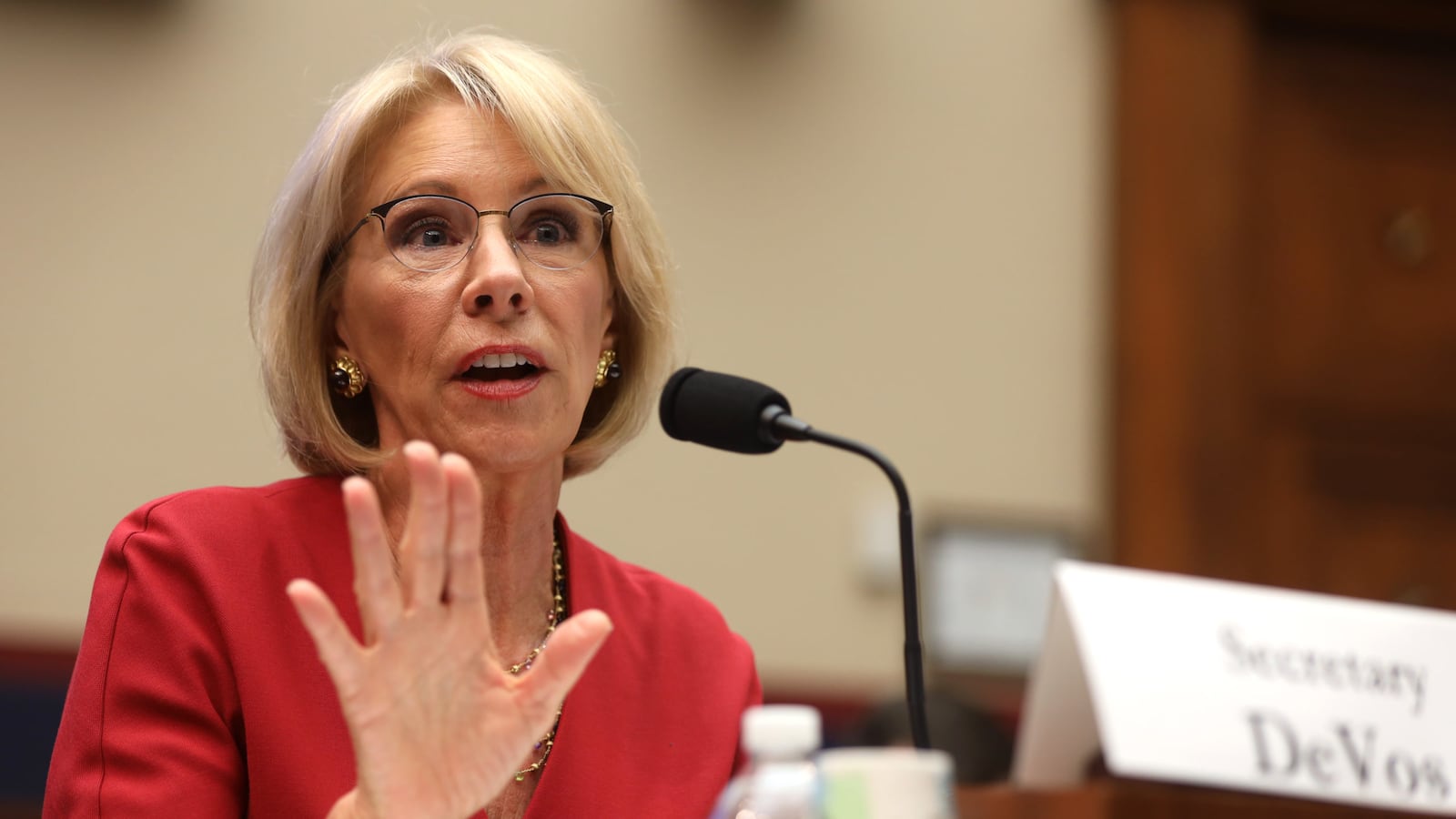The federal education department told school districts this weekend that they should not fully close — or decide against offering online instruction — because of legal concerns about serving students with disabilities.
The bottom line, the department said in a new fact sheet, is that there are ways for online instruction to be made accessible for students with disabilities, and districts need to work out the details. Many types of therapy and other services can be offered online or by phone, the department noted, and in some cases, schools and parents should agree to extend deadlines for things like IEP meetings.
“We need schools to educate all students out of principle, rather than educate no students out of fear,” Education Secretary Betsy DeVos said in a statement. “These are challenging times, but we expect schools to rise to the occasion, and the Department stands ready to assist you in your efforts.”
Department officials said they understood that during the national emergency, “schools may not be able to provide all services in the same manner they are typically provided.” If a school deems it safe to do so, officials said, certain services could still be provided to students in person.
The department’s strong words come as school districts across the U.S. struggle to quickly figure out how to educate their students online, including their students with disabilities. Some, like Miami-Dade County, have forged ahead. New York City is starting its remote-learning effort Monday, and has been distributing iPads and making plans to offer speech and occupational therapy to students over the phone.
Other districts have said they simply lack the resources to distribute the technology or provide the services for students with disabilities needed to make remote learning work for all. Chicago Public Schools is one. The Philadelphia school district is another. Both districts are providing optional printed and digital learning materials.
Some advocates for students with disabilities praised the move. “The U.S. Department of Education’s guidance is helpful. There’s a lot of flexibility under the law and in the law,” said Lindsay Jones, president of the National Center for Learning Disabilities. “Our shared goal is keeping our kids engaged and getting kids the services that we can during this time.”
The education department’s latest document says federal officials stand ready to offer “guidance, technical assistance, and information on any available flexibility.” But that doesn’t address the practical and financial roadblocks facing many districts.
Help could come with the passage of a coronavirus stimulus package that includes money for states and school districts. Negotiations are ongoing.
It’s unclear if states and districts will be able to request waivers that would loosen some of the restrictions on meeting students’ special education plans while schools are closed. Past versions of the coronavirus stimulus package legislation have called for DeVos to make recommendations about whether this would be necessary.
Matt Barnum contributed reporting.


